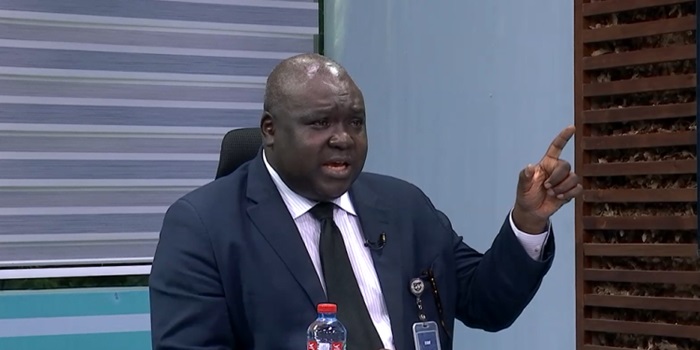Dr. Philip Abradu-Otoo, the Director of Research at the Bank of Ghana (BoG), has clarified that securing a bailout from the International Monetary Fund (IMF) would have been challenging without the implementation of the Domestic Debt Exchange Programme (DDEP).
To stabilise the economy, the government initiated the IMF programme and introduced the DDEP, which resulted in some bondholders experiencing a reduction in their investments and coupons.
In 2022, the BoG reported a loss of GHS 60.9 billion due to impairments that occurred during the domestic debt exchange programme.
In an interview with Bernard Avle on The Point of View on Citi TV, Dr. Abradu-Otoo highlighted the obstacles the government would have faced without the DDEP. He noted that they would have had to revisit other components of the DDEP.
Dr. Abradu-Otoo attributed the losses suffered by the BoG in 2022 to the domestic debt exchange programme.
“The biggest one was the impairment we had on the securities that we were holding. Just like any other individual, the BoG was also holding government securities. Out of that GHS 60.9 billion, GHS 48 billion of that were impairment. That is the losses that we incurred on our books, as a result of the DDEP.
He emphasised, “For the debt exchange programme, nobody had a haircut on the principal…for the BoG, we had the side haircut, and top haircut and the amount itself was cut into two. We had three, we had to do that because we needed that to secure the IMF programme. It would have been tough to move forward very fast. Then we would have come back to the drawing board and relook at the other parts of the DDEP.”
When asked if the BoG would have disagreed with the impairment if given the choice, he confirmed, “Yeah”.
A Memorandum of Understanding (MoU) for the early recapitalisation of the Bank of Ghana is expected to be signed by the end of the third quarter of this year following the Central Bank’s significant losses for two consecutive years.
The MoU is a strategic move to help restore the financial health of the central bank and drive its positive equity position after it posted a GHS 10.5 billion loss in 2023 due to high expenditure related to monetary interventions and a GHS 60.9 billion loss in 2022 over impairments during the domestic debt exchange programme.
The Ministry of Finance and the Bank of Ghana will sign the MoU to ensure that the Central Bank can continue with its mandate of managing monetary policy and ensuring price stability.
Source: Citinews

